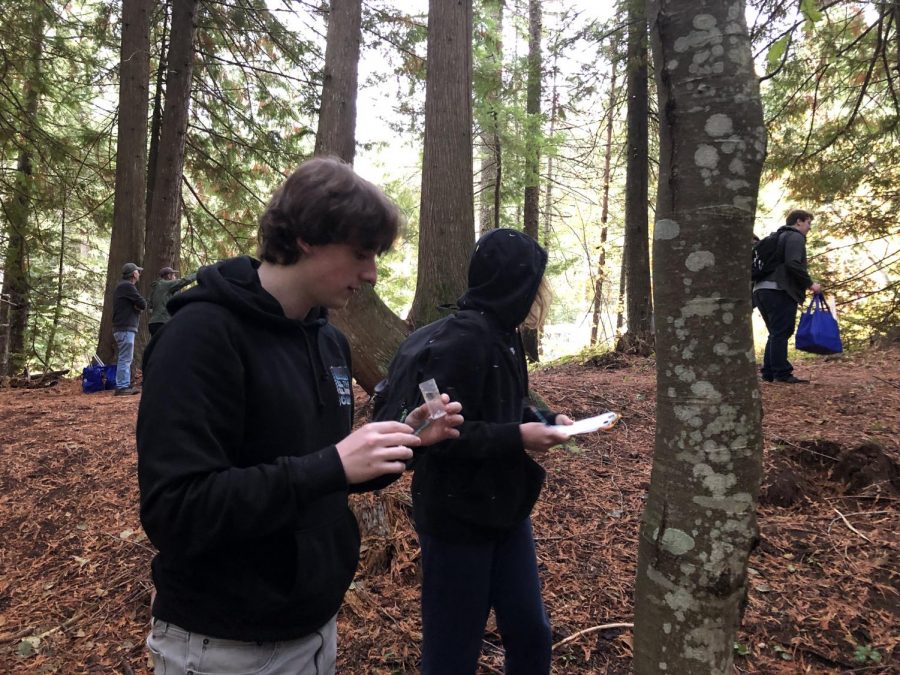Forestry Field Trip
October 29, 2021
Macroinvertebrates, fish, and other species are a common part of our world and the Wildlife and Forestry class.
The class went on a field trip to Rathdrum City and Mountain Park on October 22nd, 2021. Over 100 students attended, two buses were filled with all the class periods. Though more seats could’ve been filled if all of the students had attended.
For the students who didn’t attend the field trip, they were asked to write a paper or summary over the things they learned in class and explain what they meant.
The bus meeting location was out in the teacher parking lot and planned to leave at 7:30 and return at 1:30, halfway into 6th period.
A junior, Benjamin Beamer, states, “The field trip was a way to get out of school and kind of gave us a better idea as to how all the things we learned in class worked. Although, it was extremely cold and it rained for a majority of it, especially with the fact a large portion of us were getting in the streams to get water samples and scoop organisms out.”
A lot of students complained that it was cold while others dressed properly and made the most of the trip.
Blake Adamen, another junior, stated, “It was fun, I didn’t necessarily enjoy some of it because it was here in Rathdrum when it originally was supposed to be in Hauser Lake. But it got me out of school and there were definitely moments where I had fun.”
As for the people who went on the field trip we are now required to write a 3-page paper based on 6 certain topics with a rough draft due Friday, October 29th, 2021, and our final paper due a few days into November.
There were multiple stations on the wildlife field trip based in Rathdrum Park, the stations consisted of testing water quality, we also tested pollutants that can get into the water and into our watershed, the study of native and non-native species in the Spokane River and how they are identified, and a station that involved groups to scoop water up in a net and identify the macroinvertebrates with it.
The watershed station helped students realize their everyday products like oil, food, and beverages can potentially get into our streams if not taken care of properly. In fact, the amount of time spent in the shower and the amount of hair products used can also affect the way the aquifer and/or watershed cleans.
